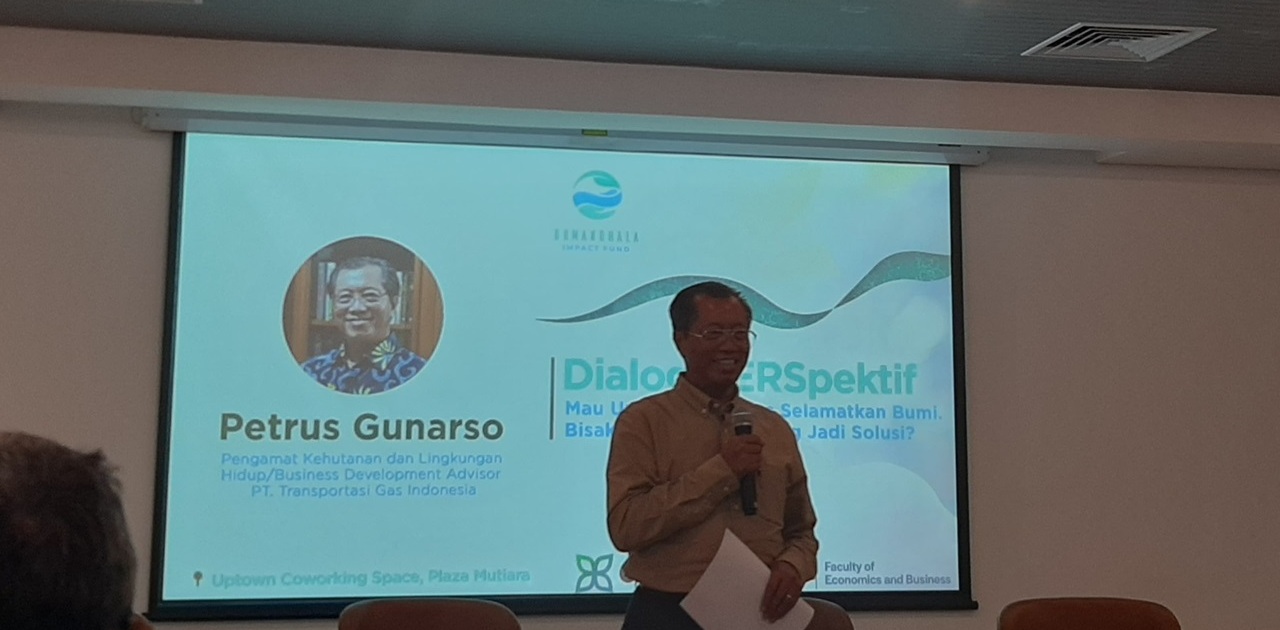Heaptalk, Jakarta — Impact investment has become widely discussed following the worsening environmental issues caused by economic activities. With the rising ecological challenges in Indonesia, such as deforestation, marine resource exploitation, and waste management, investments supporting sustainable businesses are becoming more urgent.
Without adequate financial support, the negative environmental impact will be progressively challenging to control. According to Petrus Gunarso, an Indonesian environmentalist and the Adviser of PT Transportasi Gas Indonesia, the core of impact investment is investing in projects or companies that create measurable social-environmental impacts, focusing on social and/or ecological benefits and generating financial returns.
“In practice, impact investment directs capital to companies, organizations, and projects that address critical challenges such as renewable energy, affordable housing, healthcare access, agriculture, and sustainable forestry,” said Petrus in his keynote speech at a dialogue titled ‘Profiting while saving the Earth: Can impact investing be a solution?’ held in South Jakarta (02/05).

A shift in consumer behavior
Recently, this type of investment has been growing in Indonesia. According to Global Impact Investing Network (GIIN) data, the total assets managed through impact investing worldwide now exceed US$1.1 trillion, with Indonesia becoming one of the most active impact investment markets, attracting US$1.5 billion. However, this value is insufficient to address the country’s developing social and environmental needs.
Dessi Yuliana, CEO of Carbon X, highlighted a shift in consumer behavior, especially among the younger generation, who now consider social and environmental impacts in their purchasing decisions. “Thus, there is strong market pressure for companies not only to focus on profit but also to integrate sustainability and actively contribute to solving environmental problems, from waste management to policies adopted by industries in their operations,” said Dessi (02/05).
Fikri Syaryadi, CEO of Bumandhala Impact Fund, acknowledged that the rise of impact investment opens up opportunities for the growth of social entrepreneurship in Indonesia. “Social entrepreneurship combines the fundamentals of business establishment, from idea innovation and financial management to final products aimed at addressing social-environmental issues in society, both structurally and culturally,” explained Fikri in South Jakarta (02/05).
Challenging to profit from
One of the main challenges in developing social entrepreneurship is limited funding. Many investors believe this business model is challenging to profit from, and its social impact is hard to measure. Impact investment plays a role in supporting the growth of social entrepreneurship.
Impact investment is often considered a long-term investment with returns that tend to be slower than conventional investments. Rizky Wisnoentoro, Head of the Sustainable Finance Program at the International Islamic University of Indonesia, describes impact investment as a sacrifice that must be made. “It should always be reminded that impact investment offers investors the opportunity to build reputation and trust from various stakeholders, including business partners, consumers, and the broader community, in achieving SDG targets in Indonesia,” said Rizky.
In his conclusion, Rizky emphasized the importance of setting precise and measurable targets to ensure that the efforts for change are on target and accountable, especially to the affected communities. “By determining the target and scale of the intended impact, investors can seek anchor studies to estimate the financial returns from the social impact,” he concluded.











